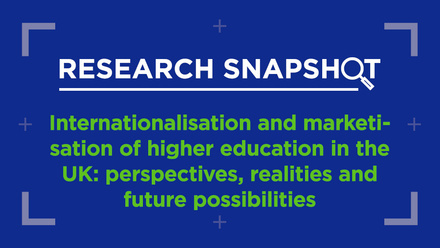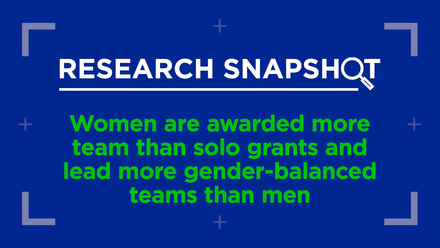Research snapshot: Exploring Generative AI in IHE

International Students and Generative Artificial Intelligence. A Cross-Cultural Exploration of HE Academic Integrity Policy
Published date: 21/04/2024
In this research, Peter Bannister, Elena Alcalde Peñalver, and Alexandra Santamaría Urbieta analysed 131 higher education institution policies across 11 countries, focusing on publicly available, English-language documents to examine how Generative Artificial Intelligence (GenAI) academic integrity policies treat international students. This scope was chosen to reflect major international student destination countries, though the researchers acknowledge this as a limitation since many institutions may have policies in other languages. Their findings revealed a critical disparity: while institutions actively recruit international students and benefit from their higher tuition fees, only 3.05% of policies addressed these students' unique challenges with GenAI tools. This oversight is particularly problematic as research shows international students face specific vulnerabilities, such as AI detection systems demonstrating bias against non-native English writing patterns. The study thus exposes a concerning gap between institutions' economic reliance on international students and their failure to protect these students' interests when it comes to GenAI academic integrity policy development. This research would be beneficial for a range of stakeholders, from educational leaders and policymakers to lecturers and students.
This pioneering research challenges HEIs to ask themselves an uncomfortable question: why do only 3% of GenAI academic integrity policies address international students’ unique challenges, despite their vital presence in our educational communities?
About the authors
Key findings from the research:
-
Our analysis of 131 HEI policies reveals that the needs and interests of international students are critically underrepresented in GenAI academic integrity policies. While these policies aim to protect academic standards, they rarely address the unique challenges international students face, such as potential bias in AI detection tools against non-native English writing, differing cultural approaches to academic writing and varying levels of technological literacy across global contexts.
-
Only four policies (3.05%) contained explicit provisions for international students, such as acknowledging language differences and providing specific guidance for students working in additional languages. This gap leaves institutions vulnerable to inadvertently disadvantaging international students through one-size-fits-all approaches to GenAI governance. The lack of tailored support mechanisms and clear guidelines specifically addressing international students' needs could lead to unintended inequitable treatment.
-
We expose a concerning misalignment between institutions' strategic focus on international student recruitment and their policy development. While universities benefit significantly from international student fees, this financial investment is not matched by proportional policy protections. This disconnect raises important questions about equitable support and duty of care in an increasingly technology-mediated educational landscape, particularly regarding fair assessment practices and academic support services.









